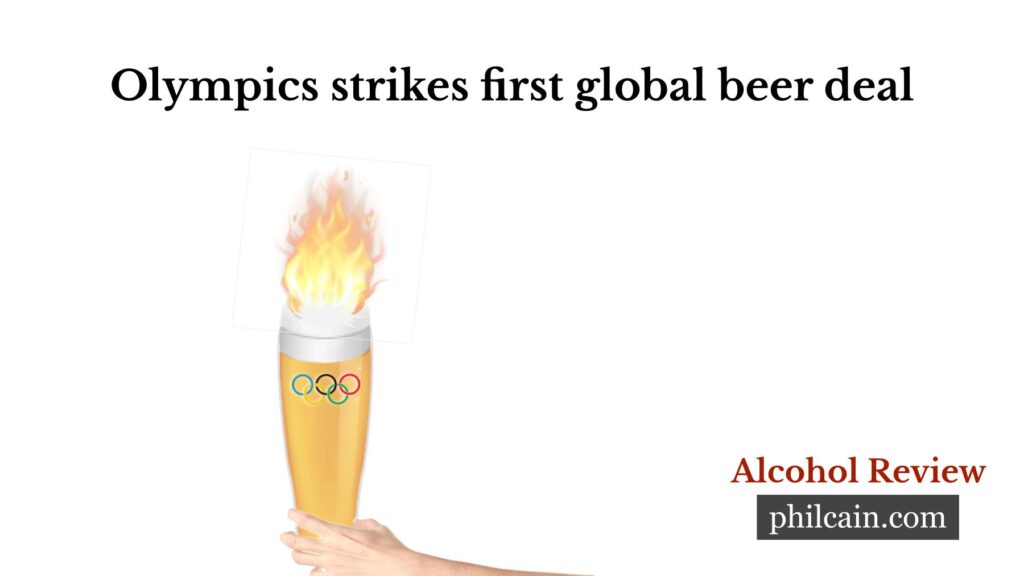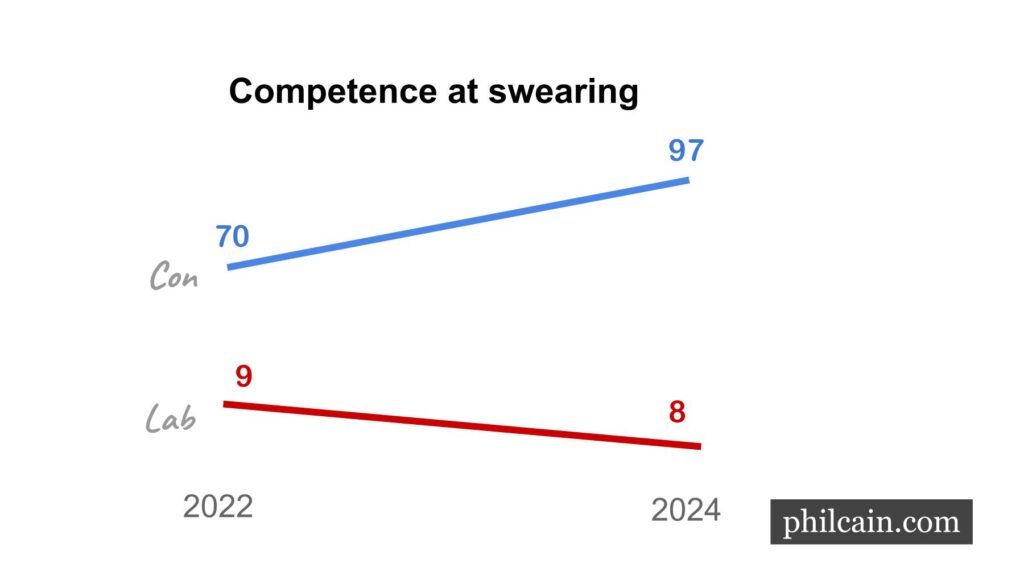
Subscribe to continue reading
Subscribe to get access to the rest of this post and other subscriber-only content.
writing, journalism, books, events, recreation
by philcain

Subscribe to get access to the rest of this post and other subscriber-only content.
by philcain
Alcohol understanding for all

*Subscribe *Books *Whatsapp *Twitter, LinkedIn *ARchive
In this issue: Olympics strikes first global beer deal; Local alcohol levies mooted; Pope issues wine reminder; Smaller glasses cut drinking; US alcohol deaths state-by-state; and more
Olympic beer deal: The Olympics’ first ever global beer promotion deal drew sharp criticism from a range of UK health advocates, including the Association of Directors of Public Health. The deal to promote beer brands at the next two Olympics covers all brands in AB InBev’s portfolio, Alcohol Review was told. The Olympics organiser said the beer branding will not be seen in the field of play and will initially revolve around the Corona Cero alcohol-free brand, a modified version of the 4.5% brand. At the LA games in 2028 the emphasis will switch to the 3.5% Michelob Ultra brand, marketed as low calorie.
Local levies: Local levies on alcohol and other unhealthy products could raise funds and reduce inequality, said the left-leaning UK think tank IPPR in a new report. Such levies would top up £3bn funding from a Health Creation Fund, with poorer areas where unhealthy outlets cluster able to raise more money. Scottish Labour said earlier in the month that it is backing an alcohol levy.
Papal whine: Pope Francis was reported to have reminded Italian wine producers of their moral and ethical responsibilities, while reassuring them their product is a “gift from God”. His reminder may relate to the Italian industry being at the vanguard of resistance to nutrition and ingredients labels.
Glass ceiling: A study removing the largest glass of wine from sale in pubs cut the total amount of alcohol consumed by 7.6%, while income remained the same. One commentator suggested huge glasses are naff anyway, while another felt the discussion was a sure sign a full ban on alcohol is nigh.
US deaths state-by-state: Alcohol Review published a table of rises in US alcohol-induced deaths by state, using provisional CDC figures. They range from Mississippi with an 85% rise and New Jersey with 11%. PBS this month talked to the author of a new four-part series in the Denver Post on how alcohol has not been treated with the same urgency as opioids. Colorado, the CDC data says, is in the middle with a 32% in deaths.
Conflicted again: The US organisation assembling a committee to assess evidence for an update to alcohol guidelines has picked a Harvard professor with financial ties to the alcohol industry, having recently backtracked on the appointment of two people with such ties.
AI ageing: The UK government is considering the use of age assurance technologies, including age estimation to decide if an individual is old enough to purchase age restricted products like alcohol.
by philcain
Alcohol understanding for all

*Subscribe *Books *Whatsapp *Twitter, LinkedIn *ARchive
In this issue: Olympics strikes first global beer deal; Local alcohol levies mooted; Pope issues wine reminder; Smaller glasses cut drinking; US alcohol deaths state-by-state; and more
Olympic beer deal: The Olympics’ first ever global beer promotion deal drew sharp criticism from a range of UK health advocates, including the Association of Directors of Public Health. The deal to promote beer brands at the next two Olympics covers all brands in AB InBev’s portfolio, Alcohol Review was told. The Olympics organiser said the beer branding will not be seen in the field of play and will initially revolve around the Corona Cero alcohol-free brand, a modified version of the 4.5% brand. At the LA games in 2028 the emphasis will switch to the 3.5% Michelob Ultra brand, marketed as low calorie.
Local levies: Local levies on alcohol and other unhealthy products could raise funds and reduce inequality, said the left-leaning UK think tank IPPR in a new report. Such levies would top up £3bn funding from a Health Creation Fund, with poorer areas where unhealthy outlets cluster able to raise more money. Scottish Labour said earlier in the month that it is backing an alcohol levy.
Papal whine: Pope Francis was reported to have reminded Italian wine producers of their moral and ethical responsibilities, while reassuring them their product is a “gift from God”. His reminder may relate to the Italian industry being at the vanguard of resistance to nutrition and ingredients labels.
Glass ceiling: A study removing the largest glass of wine from sale in pubs cut the total amount of alcohol consumed by 7.6%, while income remained the same. One commentator suggested huge glasses are naff anyway, while another felt the discussion was a sure sign a full ban on alcohol is nigh.
US deaths state-by-state: Alcohol Review published a table of rises in US alcohol-induced deaths by state, using provisional CDC figures. They range from Mississippi with an 85% rise and New Jersey with 11%. PBS this month talked to the author of a new four-part series in the Denver Post on how alcohol has not been treated with the same urgency as opioids. Colorado, the CDC data says, is in the middle with a 32% in deaths.
Conflicted again: The US organisation assembling a committee to assess evidence for an update to alcohol guidelines has picked a Harvard professor with financial ties to the alcohol industry, having recently backtracked on the appointment of two people with such ties.
AI ageing: The UK government is considering the use of age assurance technologies, including age estimation to decide if an individual is old enough to purchase age restricted products like alcohol.
by philcain
Alcohol induced deaths in each US state, in descending order of the percentage increase since the pandemic based on provisional figure for 2022.
| 2019 | 2022* | Change, % | ||
|---|---|---|---|---|
| 1 | Mississippi | 240 | 443 | 84.6 |
| 2 | Delaware | 106 | 174 | 64.2 |
| 3 | South Dakota | 191 | 307 | 60.7 |
| 4 | Alaska | 185 | 286 | 54.6 |
| 5 | South Carolina | 620 | 954 | 53.9 |
| 6 | Maine | 208 | 317 | 52.4 |
| 7 | Missouri | 608 | 911 | 49.8 |
| 8 | Indiana | 791 | 1,151 | 45.5 |
| 9 | Rhode Island | 139 | 202 | 45.3 |
| 10 | New Hampshire | 203 | 295 | 45.3 |
| 11 | Iowa | 408 | 591 | 44.9 |
| 12 | Tennessee | 936 | 1,328 | 41.9 |
| 13 | Minnesota | 828 | 1,171 | 41.4 |
| 14 | Illinois | 1,137 | 1,601 | 40.8 |
| 15 | Maryland | 430 | 601 | 39.8 |
| 16 | Montana | 246 | 343 | 39.4 |
| 17 | Nevada | 546 | 759 | 39.0 |
| 18 | Kansas | 353 | 487 | 38.0 |
| 19 | Ohio | 1,242 | 1,707 | 37.4 |
| 20 | District of Columbia | 70 | 96 | 37.1 |
| 21 | Nebraska | 271 | 371 | 36.9 |
| 22 | Wisconsin | 865 | 1,183 | 36.8 |
| 23 | Pennsylvania | 1,047 | 1,419 | 35.5 |
| 24 | Georgia | 940 | 1,273 | 35.4 |
| 25 | Oregon | 938 | 1,264 | 34.8 |
| 26 | Michigan | 1,193 | 1,598 | 33.9 |
| 27 | Louisiana | 368 | 491 | 33.4 |
| 28 | Colorado | 1,198 | 1,581 | 32.0 |
| 29 | Washington | 1,264 | 1,658 | 31.2 |
| 30 | North Dakota | 149 | 195 | 30.9 |
| 31 | North Carolina | 1,176 | 1,530 | 30.1 |
| 32 | Massachusetts | 738 | 959 | 29.9 |
| 33 | Idaho | 290 | 375 | 29.3 |
| 34 | Utah | 290 | 372 | 28.3 |
| 35 | New Mexico | 729 | 928 | 27.3 |
| 36 | New York | 1,581 | 2,009 | 27.1 |
| 37 | Oklahoma | 659 | 836 | 26.9 |
| 38 | Arizona | 1,286 | 1,623 | 26.2 |
| 39 | California | 5,345 | 6,738 | 26.1 |
| 40 | Hawaii | 96 | 121 | 26.0 |
| 41 | Virginia | 773 | 965 | 24.8 |
| 42 | Connecticut | 409 | 509 | 24.4 |
| 43 | Texas | 2,656 | 3,285 | 23.7 |
| 44 | West Virginia | 252 | 304 | 20.6 |
| 45 | Florida | 2,722 | 3,272 | 20.2 |
| 46 | Alabama | 425 | 502 | 18.1 |
| 47 | Kentucky | 553 | 646 | 16.8 |
| 48 | Wyoming | 178 | 206 | 15.7 |
| 49 | Vermont | 125 | 144 | 15.2 |
| 50 | Arkansas | 342 | 386 | 12.9 |
| 51 | New Jersey | 698 | 777 | 11.3 |
| Total | 39,043 | 51,244 | 31.3 |
by philcain

Things not looking great for the Conservatives. But is anyone measuring public confidence in creative swearing? https://t.co/2LYC8pT1Ma
— Phil Cain (@philcaincom) January 24, 2024
by philcain